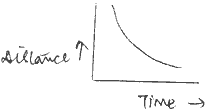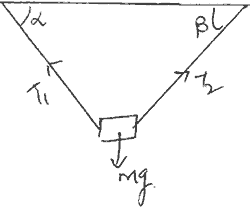9th CBSE Science Examination: Mid Term Question Paper (2019-20)
Time: 3 Hrs.
Marks: 70
Class: 9th
Date: 17/9/2019
Subject: Science
General Instructions:
- All questions are compulsory. There are 37 questions in all.
- This question paper has four sections. Section A, Section B, Section C and Section D.
- Section A contains 20 questions of one mark each, Section B contains 7 questions of marks each, Section C contains 7 questions of 3 marks each and Section D contains 3 questions of 5 marks each.
- There is no overall choice. However an internal choices have been provided in 1 question of 2 marks, 2 questions of 3 marks each and all the questions of 5 marks. You have to attempt only one of the choices in such questions.
Section A
Question: 1. What do you understand by EM force?
Question: 2. What LASER stands for?
Question: 3. Deduce the dimensional formula for (i) Potential Difference, (ii) Energy
Question: 4. State the number of significant figures in the following: (i). 050 cm, (ii) 5300 kg.
Question: 5. What does the following graph signify? Is it possible or not?
Question: 6. Can a body have a constant speed and still have varying velocity?
Question: 7. The displacement of a body is given to be proportional to the cube of time elapsed. What is the nature of the acceleration of the body?
Question: 8. When is the magnitude of the resultant of the vectors equal to either of them?
9th CBSE Science Examination – Question: 9. What is the angle between
Question: 10. Name the quantity which remains unchanged during the flight of an oblique projectile?
Question: 11. Explain why sand is thrown on tracks covered with snow in hilly areas?
Question: 12. The motion of a particle of mass on is described by y = ut + ½ gt2. Find the force acting on the particle?
Question: 13. A ship of Mass 3×107 kg initially at rest is pulled by a force of 5×104 N, through a distance of 3m. Assuming that the resistance due to water is negligible the speed of the ship is
- 1.5 m/s
- 60 m/s
- 0.1 m/s
- 5 m/s
Question: 14. Two astronauts on the surface of the moon cannot talk to each other. Why?
Question: 15. If the pressure of a gas constant temperature is increased four time, how how the velocity of sound in the gas will be affected?
Question: 16. A girl is swinging in a swing in a sitting position. How will the period of the swing be affected if she stands up?
9th CBSE Science Examination – Question: 17. Why a loud sound is heard at Resonance?
Question: 18. Which one of the following pairs of quantities has the same dimension?
- Force and work done
- Momentum and impulse
- Pressure and force
- Surface tension and stress
Question: 19. A particle is thrown above, then correct vt graph will be
Question: 20. Define dimensionless constants with examples (two).
Section B
Question: 21. Differentiate between weak nuclear and strong nuclear forces.
Question: 22. Derive 2nd and 3rd equation of motion using integral calculus.
Question: 23. A ball is released from the top of a tower of height h metres. If takes T seconds to reach the ground. What is the position of the ball in T/3 seconds.
Question: 24. Two vectors
are mutually perpendicular to each other. What is the value of α?
OR
State parallelogram Law of vector addition with proof.
Question: 25. State the law of conservation of linear momentum and derive it from Newton’s 2nd Law of Motion?
Question: 26. A SHM is represented by y=5 sin (20t + 0.5)m. What are its amplitude, angular frequency and time period.
Question: 27. Derive Newton’s formula for the velocity of sound in air, what was the Laplace correction applied.
Section C
Question: 28. The period of vibration of a tuning fork depends on the length ‘l‘ of its prong, density ‘d’ and Young’s modulus ‘Y’ of its material. Deduce the expression for the period of vibration on the basis of dimensions.
OR
The specific resistance σ of a thin wire of radius r cm, resistance RΩ and length L cm given by σ = 8πr²R/L
If r = 0.26 + 0.02 cm
R = 32 + 1Ω
And L = 78 + 0.01 cm
Also find % error in σ.
Question: 29. A ball thrown vertically upwards with a speed of 19.6 m/s from the top of a tower returns to the earth in 6 sec. Find the height of the tower.
Question: 30. Define angular displacement. Deduce the relation of angular acceleration with linear acceleration.
Question: 31. A body of mass m is suspended by two strings making angles α and β with the horizontal as shown in fig. Find the tensions in the string.
OR
Find the expression for the work done in sliding the body over a rough horizontal surface.
Question: 32. Why does a cyclist lean inwards when moving along a curved path? Determine the angle through which a cyclist bends from the vertical while negotiating a curve.
Question: 33. Derive the expression for the oscillations of Mass attached with a vertical spring.
Question: 34. Derive the expression for the energy of a particle executing SHM. Also plot the graph showing the variation of P.E., K.E. and T.E. (total energy) of particle executing SHM.
Section D
Question: 35. A man of Mass m is standing on the floor of a lift. Find his apparent weight when the lift is
(i) moving upwards with uniform acceleration a (ii) moving downwards with uniform acceleration, a (ii) at rest or moving with uniform velocity, V(iv) falling freely.
OR
Define friction and its types. Explain with labelled variation between friction (f) and applied Force (F). Derive the expression for coefficient of static friction.
Question: 36. Define phase and phase difference. Plot the sinusoidal variation and give phasor treatment to the wave.
Y1 = α sin wt.
Y 1 = α sin (wt. + π/2)
OR
Write equation representing a progressive wave propagating aong positive x-axis.
Differentiate between Longitudinal and transverse wave Motion.
Question: 37. In successive measurements, the readings of the period of oscillation of a simple pendulum were found to be 2.635, 2.565, 2.425, 2.715, 2.805 sec in an experiment.
Calculate:
- Mean value of the period of oscillation absolute error in each measurement
- Mean absolute error, relative error, percentage error.
 Class Notes NCERT Solutions for CBSE Students
Class Notes NCERT Solutions for CBSE Students








